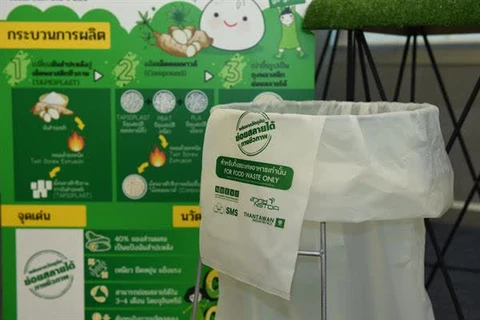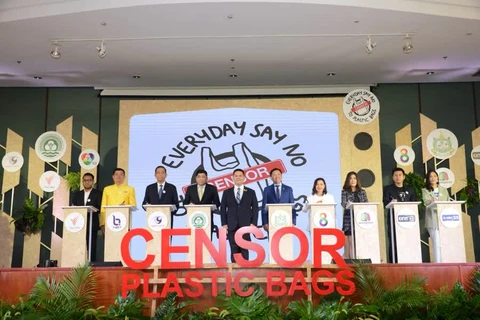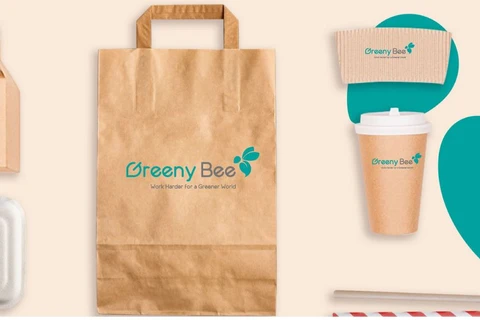Hanoi (VNA) – Thailand will ban the import, production and sale of beauty products containing plastic microbeads, effective from January 1, 2020, the Ministry of Public Health announced on December 24.
In an announcement published in the Royal Gazette, the ministry said plastic microbeads, which are used in rinse-off products such as face scrubs, do not degrade over time in water or in the environment.
Because of their tiny size, the spherical beads, used as exfoliants, are then washed down the drain, often slip through waste water treatment system and end up in the sea, the ministry noted.
The UK, for instance, prohibited the use of plastic microbeads in the production of cosmetics and personal care products in 2018, out of concern over their impact on marine life, the ministry explained.
Plastic pollution, particularly in rivers, lakes, canals and oceans, is a serious threat to the global ecosystem as it is harmful to the life of marine and freshwater species and damaging the beauty of beaches.
Plastics enter the food chain when they degrade, severely affecting the human heath. A World Wide Fund for Nature (WWF) study finds that on average each person could be ingesting approximately 5 grammes of plastic every week, which is the equivalent weight of a credit card./.
In an announcement published in the Royal Gazette, the ministry said plastic microbeads, which are used in rinse-off products such as face scrubs, do not degrade over time in water or in the environment.
Because of their tiny size, the spherical beads, used as exfoliants, are then washed down the drain, often slip through waste water treatment system and end up in the sea, the ministry noted.
The UK, for instance, prohibited the use of plastic microbeads in the production of cosmetics and personal care products in 2018, out of concern over their impact on marine life, the ministry explained.
Plastic pollution, particularly in rivers, lakes, canals and oceans, is a serious threat to the global ecosystem as it is harmful to the life of marine and freshwater species and damaging the beauty of beaches.
Plastics enter the food chain when they degrade, severely affecting the human heath. A World Wide Fund for Nature (WWF) study finds that on average each person could be ingesting approximately 5 grammes of plastic every week, which is the equivalent weight of a credit card./.
VNA























